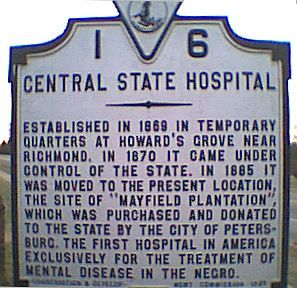by James A. Bacon
Marcus-David Peters, fatally shot in 2018 by a Richmond police officer while in the midst of a mental health crisis, has become an icon for criminal justice reform in Virginia. Protesters occupying the area around the Lee statue on Monument Avenue erected a sign (since removed) designating Lee Circle as Marcus-David Peters Circle. Lawmakers named the “Marcus-David Alert” bill after him, requiring all police departments by 2026 to dispatch mental health professionals to emergency situations involving people in mental distress.
The story of how Peters, an unarmed black man, met his demise is a tragic one, and tales like it are all too common. Many police-civilian encounters ending in violence involve people suffering from mental breakdowns. It makes intuitive sense to use trained mental-health professionals to talk them down from the ledge, so to speak, rather than relying on police officers trained primarily in the use of force.
But a close look at how the Peters tragedy unfolded raises questions. Given the rapidity with which events unfolded, would a “mobile crisis team” have made a difference? Would putting mental health professionals into the front line of law enforcement have put their lives in danger? Continue reading



 By Dick Hall-Sizemore
By Dick Hall-Sizemore
 By Dick Hall-Sizemore
By Dick Hall-Sizemore


 The capital projects section of the budget bill is often overlooked by the media. That has been especially the case this year, with all the major initiatives brought forth by the Democrats.
The capital projects section of the budget bill is often overlooked by the media. That has been especially the case this year, with all the major initiatives brought forth by the Democrats. The Commonwealth is experiencing a crisis in its mental health system. The situation is the result of some positive initiatives of the General Assembly, coupled with the legislature’s reluctance to provide the funding needed to deal with the results of those initiatives.
The Commonwealth is experiencing a crisis in its mental health system. The situation is the result of some positive initiatives of the General Assembly, coupled with the legislature’s reluctance to provide the funding needed to deal with the results of those initiatives.
 The Richmond Times-Dispatch has a front-page
The Richmond Times-Dispatch has a front-page 
